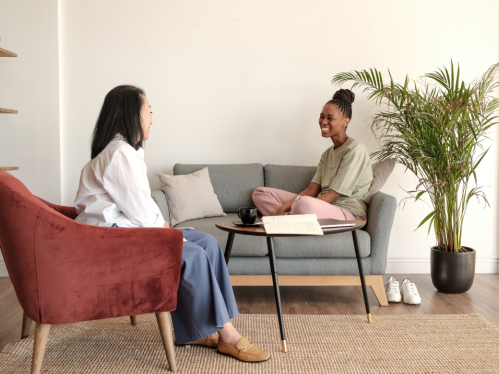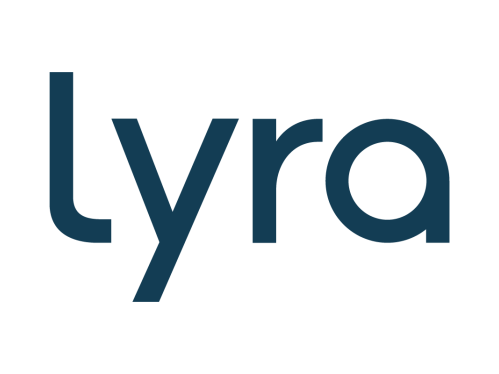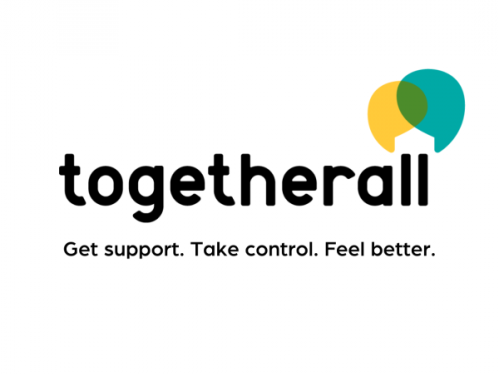Mental Health & Wellness
Welcome!
Our staff cares tremendously about our postdocs' mental health and overall well-being. We're dedicated to supporting the well-being of our postdoctoral community. Explore these resources to promote mental health and overall wellness, and join us in creating a culture of resilience and support for all postdocs. Both internal and external resources are available to you.

How to manage your mental health | Leon Taylor | TEDxClapham
New Employee Assistance Program (EAP) with Lyra Health
Rutgers has launched an EAP designed to support emotional well-being. This benefit includes six mental health therapy sessions, wellness coaching, and additional resources at no cost to employees and their families.

Togetherall
It can be hard opening up about our mental health, especially with those closest to us.
Togetherall offers an anonymous community of like-minded individuals where you can get (or give) support.

Accordion Content
-
Rutgers Faculty and Staff Assistance Program (FSAP)
FSAP provides comprehensive counseling and referral services to Legacy Rutgers postdocs. Through its collaboration with other university and community agencies, the Faculty and Staff Assistance Program promotes a supportive and harmonious workplace and recognizes the individual challenges and needs of Rutgers employees.
For appointments, Legacy Rutgers Postdocs can call (866) 327-8242 (Offices in Newark/Piscataway/Voorhees), or email Marianne Kunze for more information. 24-hour service is available for crisis and emergency contact by calling (848) 932-3956.
Employee Assistance Program (EAP)
An Employee Assistance Program (EAP) is a confidential counseling service that helps employees deal effectively with problems that may be affecting their well-being, their personal lives, and/or their job performance. RBHS postdocs can take advantage of this short-term counseling service. To learn more, visit this webpage or call 1-800-327-3678.
Joyable -- A Digital Wellness Resource for Employees
As part of our ongoing efforts to provide health and wellness resources to employees, we would like to share a digital wellness tool called Joyable, available at no cost to employees enrolled in state health benefits. Joyable is a mobile app designed to help manage stress, anxiety, and/or depression anytime, anywhere, from your mobile device or computer.
-
Postdoctoral Fellows with health insurance through UnitedHealth can take advantage of BetterHelp. BetterHelp is the world's largest e-counseling platform, and aims to make professional counseling accessible, affordable, convenient - so anyone who struggles with life’s challenges can get help, anytime, anywhere.
-
Local Resources:
- Atlantic Health System - Crisis Intervention Services: In the event of a psychiatric emergency, Atlantic Behavioral Health offers crisis intervention services, including a 24-hour hotline, risk assessments and screenings, and community trauma assistance.
- Richard Hall Community Mental Health Center: A comprehensive community mental health center dedicated to the prevention, early detection, and treatment of mental illness and serious emotional and behavioral problems. A wide range of services are provided on a sliding fee scale for county residents.
- PerformCare NJ: When a child is facing challenges to their functioning and well-being, finding the right services and support can be overwhelming. PerformCare is committed to helping you access the right services for your child.
- NJ Mental Health Cares: The MHANJ is a statewide non-profit organization whose mission is to strive for children and adults to achieve victory over mental illness and substance use disorders through advocacy, education, training and services.
Federal Resources:
- Health Resources and Services Administration (HRSA): HRSA works to improve access to health care. The HRSA website has information on finding affordable healthcare, including health centers that offer care on a sliding fee scale.
- Centers for Medicare & Medicaid Services (CMS): CMS has information on its website about benefits and eligibility for mental health programs and how to enroll.
- The National Library of Medicine (NLM) MedlinePlus: NLM’s website has directories and lists of organizations that can help in identifying a health practitioner.
- Mental Health and Addiction Insurance Help: This website from the U.S. Department of Health and Human Services offers resources to help answer questions about insurance coverage for mental health care.
Other Resources:
-
Making the Most of Who You Are and Where You're Planted: Postdoc Resilience Guide 2025-2026 (Penn State Office of Postdoctoral Affairs)
-
NIH Becoming a Resilient Scientist Series (Fall 2022): A series of webinars and small group discussions to help you develop the confidence and resilience you need to navigate challenging situations in school, work, and life.
-
NPA Webinars:
-
- Self-help resources such as apps, meditation, or guided exercises can be a great way to manage day-to-day stress or to use periodically when you feel overwhelmed. Please click here to visit CAPS' self-help page which is full of resources such as these. Please note that these resources are not a substitute for professional mental health services.
- CAPS is offering a series, CAPS CARES, facilitated by Dr. Jones-Damis. The purpose of this is to offer tips, ideas, and insights, and answer questions about concerns or situations with your students. CAPS CARES runs every 2nd and 4th Friday of the month from 1:00-1:50 pm.
-
NJ Hopeline
1-855-654-6735
New Jersey's 24/7 Peer Support & Suicide Prevention Hotline. Specialists are available for confidential telephone counseling and support 24 hours a day, 7 day per week.
SAMHSA's National Helpline
1-800-662-HELP (4357)
A confidential, free, 24-hour-a-day, 365-day-a-year, information service, in English and Spanish, for individuals and family members facing mental and/or substance use disorders. This service provides referrals to local treatment facilities, support groups, and community-based organizations. Callers can also order free publications and other information.
National Suicide Prevention Lifeline
988
If you or someone you know is suicidal or in emotional distress, contact the National Suicide Prevention Lifeline. Trained crisis workers are available to talk 24 hours a day, 7 days a week. Your confidential and toll-free call goes to the nearest crisis center in the Lifeline national network. These centers provide crisis counseling and mental health referrals.
Crisis Text Line
Text "HOME" to 741741
The Crisis Text hotline is available 24 hours a day, seven days a week throughout the U.S. The Crisis Text Line serves anyone, in any type of crisis, connecting them with a crisis counselor who can provide support and information.
-
Apps:
- What's Up?: Uses Cognitive Behavioral Therapy (CBT) and Acceptance Commitment Therapy (ACT) methods to help you cope with Depression, Anxiety, Stress, and more.
- Moodfit: Shapes up your mood with proven tools & insight using CBT, mood journaling, gratitude, mindfulness & more.
- Calm: Helps users sleep better, boost confidence and reduce stress and anxiety, all with the help of guided meditations, soothing music, and bedtime stories
- Breathe2Relax: Teaches a skill called “diaphragmatic breathing” via guided practice sessions to help users feel more relaxed.
- Happify: Improves overall well-being and happiness, with influences from positive psychology, cognitive behavioral therapy, and mindfulness. Each activity intends to strengthen one of the five happiness skills: savor, thankful, aspire, give, or empathize.
Mental Health Guides:
-
-
Rutgers Office for Violence Prevention and Victim Assistance (VPVA):
Provides confidential crisis intervention, counseling, and advocacy for survivors of interpersonal violence.
Visit VPVA -
Sexual Harassment Prevention and Culture Change at Rutgers:
University-wide initiative focused on building a respectful and inclusive climate through prevention and education.
Learn more -
National Academies Issue Paper – Supporting Postdoctoral Scholars Experiencing Sexual Harassment in Higher Education:
Explores the unique vulnerabilities of postdocs, the impact of sexual harassment on their careers, and potential institutional responses.
Read the issue paper -
New Jersey Coalition Against Sexual Assault (NJCASA):
A statewide organization working to end sexual violence through advocacy, education, and support for survivors.
Visit NJCASA -
New Jersey Coalition to End Domestic Violence (NJCEDV):
Provides support, advocacy, and resources to end domestic violence and support survivors across New Jersey.
Visit NJCEDV -
Stalking, Prevention, Awareness, and Resource Center (SPARC):
Offers education, training, and resources to address and prevent stalking.
Visit SPARC -
VictimConnect Resource Center:
A confidential, compassionate helpline where crime victims can learn about their rights and options.
Visit VictimConnect -
National Domestic Violence Hotline:
Offers 24/7 support, resources, and safety planning for those affected by domestic violence.
Call 1-800-799-SAFE (7233) or visit the website -
RAINN (Rape, Abuse & Incest National Network):
The nation’s largest anti-sexual violence organization offering support via a 24/7 hotline and online chat.
Call 1-800-656-HOPE (4673) or visit RAINN
-
►Disclaimer: The information provided here is not intended to replace the expertise, competence, and discernment of qualified mental health care professionals. In the event of a genuine medical or psychiatric emergency, please dial 911 immediately or reach out to any of the Helplines listed above for assistance.

Get in Touch
Office of Postdoctoral Advancement
7 College Avenue, 4th Floor
New Brunswick, NJ 08901
Hours: Monday–Friday, 8:30 a.m. to 4:30 p.m.